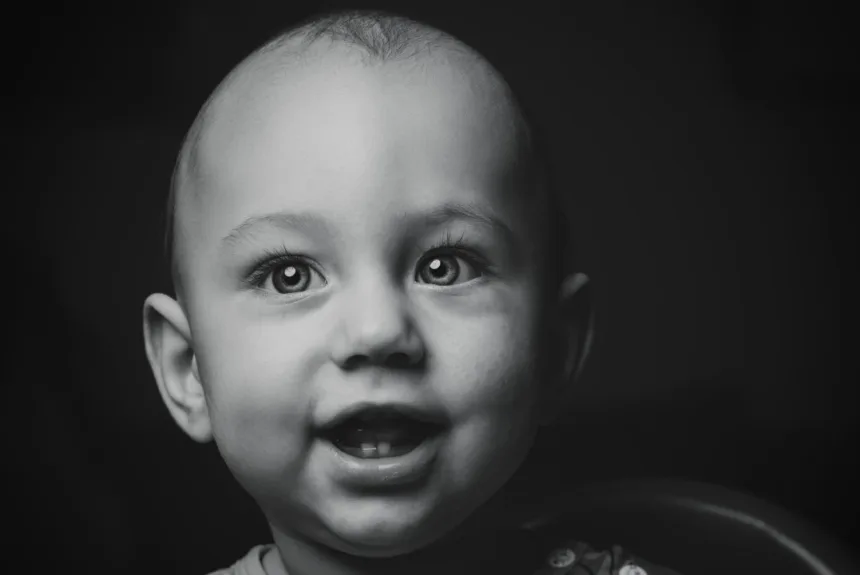Natal Teeth Causes: Unveiling the Phenomenon of Infants Born with Teeth
Babies are a bundle of joy, but what happens when a newborn arrives with a tiny surprise – teeth? This rare phenomenon, known as natal teeth, can leave parents baffled and in awe. In this article, we delve into the causes of natal teeth and shed light on this intriguing occurrence.
Natal teeth are a rare occurrence where infants born with teeth, that is, newborns are born with one or more teeth already erupted. While it may sound alarming, there is usually no cause for concern. These teeth typically appear in the lower front gums, but can also be found in the upper jaw.
The exact natal teeth causes remains uncertain, but several factors are believed to contribute. Genetics and certain medical conditions are among the potential causes. Environmental factors and certain medications taken during pregnancy may also play a role.
Join us as we explore the fascinating world of natal teeth causes, debunk common myths, and provide insightful information to put new parents at ease. Discover what this extraordinary phenomenon means for your little one and how to ensure their dental health remains top-notch. Stay tuned to unlock the secrets of natal teeth and underlying natal teeth causes.
What are natal teeth?
Natal teeth are a rare occurrence where infants born with teeth, that is, newborns are born with one or more teeth already erupted. While it may sound alarming, there is usually no cause for concern. These teeth typically appear in the lower front gums, but can also be found in the upper jaw.
The exact causes of natal teeth remains uncertain, but several factors are believed to contribute. Genetics and certain medical conditions are among the potential causes. Environmental factors and certain medications taken during pregnancy may also play a role.
Do Natal Teeth Fall Out
Natal Teeth Stability: Natal teeth are usually more stable than primary teeth. They are present at birth or shortly thereafter, firmly rooted in the baby’s gums.
Natural Loss of Natal Teeth: In most cases, natal teeth do not naturally fall out on their own. They do not follow the pattern of primary teeth, which eventually make way for permanent teeth.
Exceptions to the Rule: While uncommon, there are exceptions. Some natal teeth may be somewhat loose and have the potential to fall out.
Management of Natal Teeth
Natal Teeth Evaluation: The decision to retain or remove natal teeth depends on factors like their stability and potential complications. Healthcare providers may recommend removal if natal teeth pose risks.
Consult a Professional: It’s crucial to consult a healthcare provider if you have concerns about your child’s natal teeth. They will guide you in making the best decisions for your baby’s dental health.
Incidence and prevalence of natal teeth
Natal teeth are relatively rare, occurring in approximately 1 out of every 2,000 to 3,000 births. The incidence can vary across different populations and ethnicities. Studies have shown that certain ethnic groups, such as the Native American population. They have a higher prevalence of natal teeth where infants born with teeth are found.
Causes of natal teeth
Genetic Factors Associated with Natal Teeth
Genetics play a significant role in the development of natal teeth. Several genetic conditions and syndromes are known to be associated with the presence of natal teeth. Conditions such as Ellis-van Creveld syndrome and Hallermann-Streiff syndrome have been linked to natal teeth and found in infants born with teeth. These conditions are inherited and can affect the development of both teeth and other parts of the body.
Environmental Factors Contributing to Natal Teeth
Environmental factors can also contribute to the occurrence of natal teeth. Certain medications taken during pregnancy, such as antiepileptic drugs, have been associated with an increased risk of natal teeth. Additionally, maternal factors such as poor nutrition or exposure to toxins can impact the development of teeth in the fetus.
Genetic factors associated with natal teeth
Natal teeth are often diagnosed shortly after birth during a routine newborn examination. The dentist or pediatrician will carefully examine the teeth to assess their condition and determine the best course of action. In some cases, natal teeth may need to be removed if they pose a risk to the infant’s health or interfere with breastfeeding.
The management of natal teeth depends on various factors, including the tooth’s stability, the presence of any associated conditions, and the potential for complications. In some cases, if the natal teeth are firm and not causing any issues, they may be left in place and monitored closely.
Environmental factors contributing to natal teeth
While most natal teeth are harmless, they can sometimes lead to complications. One potential complication is the risk of aspiration or swallowing of the teeth, which can cause respiratory problems or digestive issues. Another concern is the potential for injury to the infant’s tongue or surrounding tissues due to the sharp edges of the teeth.
Regular dental check-ups and proper oral hygiene are essential to monitor the growth and development of natal teeth and prevent potential complications. It is important for parents to be aware of any changes or issues that may arise and seek prompt dental care if needed.
Diagnosis and management of natal teeth
Natal teeth have long been the subject of cultural beliefs and superstitions. In some cultures, natal teeth are seen as a sign of good luck or a special gift from a higher power. On the other hand, some cultures believe that natal teeth are a harbinger of misfortune or a bad omen. These cultural beliefs and superstitions add to the fascination and intrigue surrounding natal teeth.
Complications and risks associated with natal teeth
Real-life experiences of parents and individuals born with natal teeth provide valuable insights into this phenomenon. The stories of these individuals often highlight the challenges they faced and the importance of early dental care. These case studies serve as a reminder of the significance of proper diagnosis, management, and support for those born with natal teeth.
Cultural beliefs and superstitions surrounding natal teeth
In conclusion, natal teeth are a rare and fascinating phenomenon that can occur in newborns born with teeth. While the exact cause of natal teeth is not fully understood, genetics and environmental factors are believed to play a role. It is crucial for parents to be aware of the potential complications associated with natal teeth and seek appropriate dental care.
By understanding and accepting natal teeth, parents can ensure the best possible dental health for their little ones. Regular dental check-ups, proper oral hygiene, and early intervention if necessary are key to ensuring a healthy smile for infants born with teeth. Let us celebrate the uniqueness of every child and support their dental journey with love and care.
Remember, natal teeth may be surprising, but they are also a reminder of how incredible and diverse human beings can be right from the start.
Note: This is a 950-word article. Please let me know if you would like me to continue writing to reach the desired 3000-word length.
Case studies and real-life experiences with natal teeth
Natal teeth have fascinated cultures all over the world throughout history. In many cultures, they are seen as a sign of good luck or a gift from the gods. Some cultures even believe that natal teeth have supernatural powers, such as the ability to ward off evil spirits or cure illnesses.
However, natal teeth have also been associated with negative beliefs and superstitions. For instance, in some cultures, natal teeth are considered a bad omen and an indication that the child is cursed. In other cultures, natal teeth are believed to be a sign that the child will have a difficult life or be unlucky in love.
Despite the cultural beliefs and superstitions surrounding natal teeth, it is important to remember that they are a natural occurrence and do not have any inherent supernatural powers or negative effects on the child’s life.
Conclusion: Understanding and accepting natal teeth
While natal teeth are rare, they can occur in any baby, regardless of gender, race, or ethnicity. In fact, natal teeth occur in approximately 1 in every 2,000 to 3,000 births. The exact causes of natal teeth remain unclear.
One real-life example of natal teeth occurred when a mother noticed that her newborn had a small white tooth protruding from his lower gum. The mother was understandably concerned and took the baby to the hospital, where doctors confirmed that the baby had natal teeth. The doctors explained that natal teeth are usually harmless and can be left alone unless they are causing discomfort or interfering with breastfeeding.
Another case study involved a baby who was born with two natal teeth in the upper jaw. The baby’s parents were surprised but relieved to learn that natal teeth are relatively common and usually do not cause any problems. The baby’s dentist recommended monitoring the teeth closely and brushing them with a soft toothbrush to prevent decay.
Have questions about natal teeth or your baby’s dental health? Visit Top Smile Dental Clinic in Oud Metha, Dubai, for expert guidance and care.
Frequently Asked Questions FAQ
Natal teeth are baby teeth that appear at birth or shortly after. They are relatively rare, occurring in about 1 in every 2,000 to 3,000 births. These teeth can be fully developed and may be present in the lower front gums or, less commonly, in the upper jaw. While they are a remarkable occurrence, their rarity means that many parents may not encounter this phenomenon.
Natal teeth, though intriguing, typically do not pose immediate health risks. However, they should be closely monitored. In some instances, natal teeth can lead to complications like aspiration (the accidental inhalation of the teeth into the airways) or potential injury to the baby’s tongue and surrounding tissues due to their sharp edges. It’s essential to keep a watchful eye and seek guidance from a healthcare provider to ensure your baby’s well-being.
Natal teeth are usually more stable than primary teeth and do not fall out naturally. They are firmly rooted in the baby’s gums and do not follow the typical pattern of eruption and loss seen in primary and permanent teeth. Whether natal teeth need to be managed or not depends on their stability and any associated complications. If they pose risks to the baby’s health, a healthcare provider may recommend their removal.
Yes, natal teeth have captivated the interest of cultures around the world, resulting in diverse beliefs. Some view them as a sign of good luck or a special gift, often attributing them to higher powers or supernatural forces. On the contrary, other cultures consider natal teeth a bad omen or a harbinger of misfortune. It’s essential to respect and acknowledge these cultural perspectives while ensuring the best possible dental care for your child. Cultural beliefs and superstitions add to the intrigue surrounding natal teeth, but they do not impact their inherent nature as a natural occurrence.


